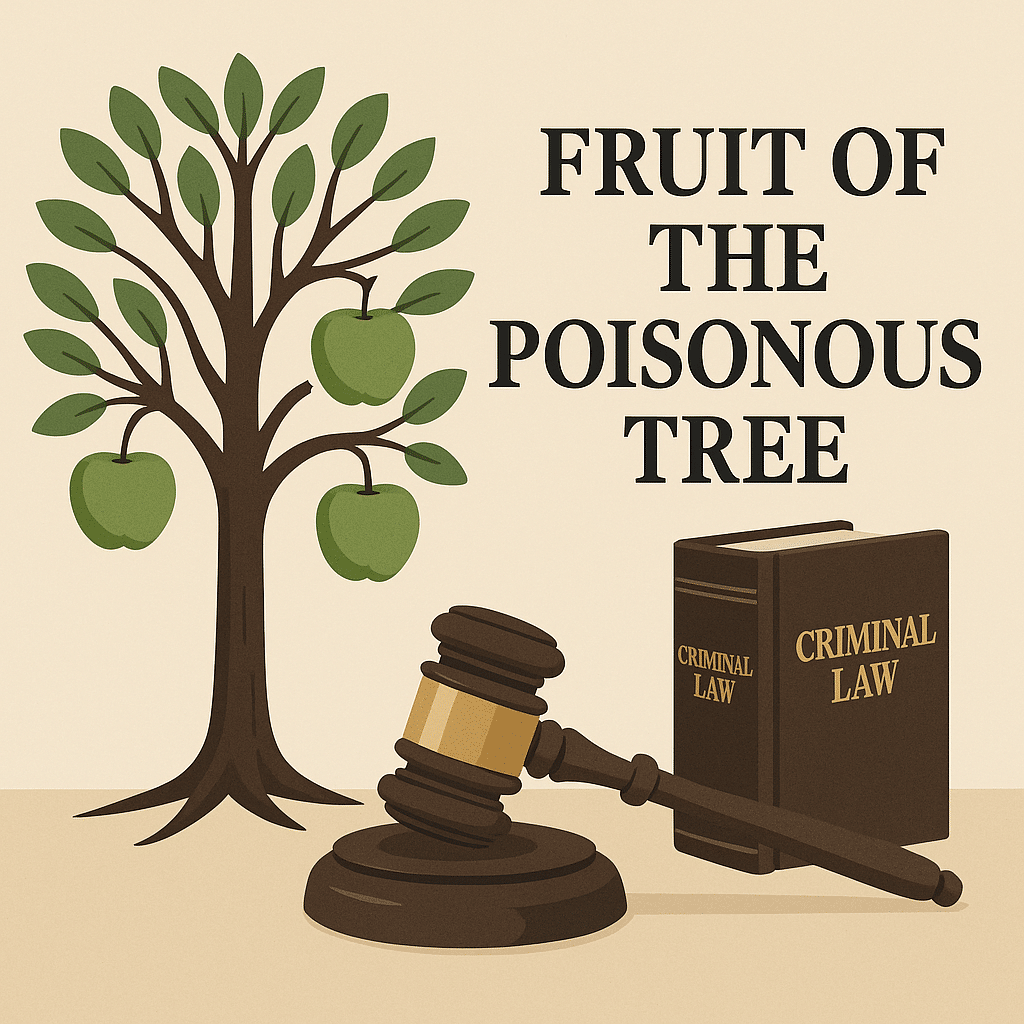
If you’ve been charged with a crime in Maryland, you may be wondering how strong the evidence against you really is. One powerful defense tool your lawyer may use is the “fruit of the poisonous tree” doctrine—a legal principle that protects your constitutional rights and can lead to critical evidence being thrown out in court.
What Is the “Fruit of the Poisonous Tree” Doctrine?
In simple terms, the “fruit of the poisonous tree” doctrine says that if police collect evidence illegally, any evidence that comes from that original illegal action is also tainted and should be excluded from your case.
The name comes from a metaphor: if the “tree” (the source of the evidence) is poisoned (i.e., obtained unlawfully), then the “fruit” (the evidence that comes from it) is also poisoned and not fit for court.
This doctrine is based on the Fourth Amendment of the U.S. Constitution, which protects against unreasonable searches and seizures, and is reinforced by Maryland state law.
Real-World Example
Let’s say police officers search your home without a warrant or your permission—and without any legal exception to justify it. During that search, they find a cell phone. They later use information from that phone to locate drugs in a storage unit. Under the “fruit of the poisonous tree” rule, both the phone and the drugs could be excluded from evidence, because the search that uncovered the phone was illegal.
How This Doctrine Applies in Maryland
In Maryland courts, evidence obtained through unlawful police conduct is not automatically admissible. Defense attorneys can file a motion to suppress evidence that violates this rule. If the court agrees that the evidence is the result of an illegal search, seizure, or interrogation, it may be ruled inadmissible—potentially weakening the prosecution’s entire case.
This can be a key defense strategy in cases involving:
- Drug charges
- Gun offenses
- DUI/DWI arrests
- Homicide or assault investigations
- Searches of vehicles, homes, or phones
Exceptions: When Tainted Evidence Can Still Be Used
There are some exceptions to the rule that might allow otherwise illegal evidence to be used in court. These include:
- Independent Source: The evidence was discovered through a legal method, separate from the unlawful conduct.
- Inevitable Discovery: Police would have found the evidence eventually through proper, legal means.
- Attenuation Doctrine: The connection between the illegal act and the discovery of the evidence is so indirect that the taint is considered removed.
- Good Faith Exception: Police were acting on what they reasonably believed was a valid warrant or lawful authority.
A skilled Southern Maryland criminal lawyer can identify whether these exceptions apply—or whether they can be challenged.
Why It Matters for Your Case
Evidence suppression based on the “fruit of the poisonous tree” doctrine can be the difference between conviction and acquittal. Challenging unconstitutional police procedures doesn’t just protect your rights—it can dramatically change the outcome of your case.
Don’t Assume the Evidence Against You Is Ironclad
If you’re facing criminal charges in Prince George’s County, Charles County, St. Mary’s County, Calvert County, or elsewhere in Southern Maryland, don’t assume the prosecution’s evidence is valid. Even a small violation of your constitutional rights can be enough to suppress key evidence.
At Southern Maryland Criminal Defense, we review every detail of your case to uncover any illegal searches, seizures, or statements—and fight to keep that evidence out of court.
Charged with a crime? Let’s review the evidence.
Schedule a free consultation with a trusted Southern Maryland criminal lawyer today.
